|
Brought to you by Dairy's Professional Development Organization®
|
|
Opportunities to learn...
 NEW WEBINAR SERIES TO FOCUS ON VENTILATION
in both natural- and mechanical-design concepts. The first of the two-part series will be held on Wednesday, January 11 from 12pm to 1pm CST. Dr. Nigel Cook, professor in the Food Animal Production Medicine section at the University of Wisconsin-Madison School of Veterinary Medicine will present "Challenges of Naturally Ventilating Cow Barns," and will cover the basic design concepts required for effective natural ventilation and examine why some struggle to keep cows cool in these facilities during the summer. He'll also review financial returns for different ventilation options. The second session will focus on mechanical ventilation options, including cross and tunnel ventilation. Click here to see the series flyer and to register. NEW WEBINAR SERIES TO FOCUS ON VENTILATION
in both natural- and mechanical-design concepts. The first of the two-part series will be held on Wednesday, January 11 from 12pm to 1pm CST. Dr. Nigel Cook, professor in the Food Animal Production Medicine section at the University of Wisconsin-Madison School of Veterinary Medicine will present "Challenges of Naturally Ventilating Cow Barns," and will cover the basic design concepts required for effective natural ventilation and examine why some struggle to keep cows cool in these facilities during the summer. He'll also review financial returns for different ventilation options. The second session will focus on mechanical ventilation options, including cross and tunnel ventilation. Click here to see the series flyer and to register.
CRISIS MANAGEMENT IS THE FOCUS OF THE NEXT VISIBLE VOICE TRAINING. The next "Dairy's Visible Voice" winter series training will be held on January 26 from 9am to 4pm in Baraboo, Wis. and will give your team the skills and confidence to manage the media during a crisis, rather than the media managing you. This module starts by looking at the types of crisis-communication situations, then shares a unique numerical risk ranking, so you can rank and prioritize the crisis situations for your farm. By the session's end, you will know best practices and common activities and events that will help you build relationships in the community. Upcoming 'Dairy's Visible Voice' courses will focus on Effective Leadership and Proactive Communications. Review the full course listing here. Register online or call 800-947-7379.
 2017 MANAGERS ACADEMY TO FOCUS ON PROFIT STRATEGIES. 2017 MANAGERS ACADEMY TO FOCUS ON PROFIT STRATEGIES.
The 2017 Managers Academy for Dairy Professionals™ will provide three days of high-energy, life-long learning that will position your business for success. After touring and discovering the common interests that the dairy industry shares with the San Diego Zoo and Sea World - and learning their fresh approaches to long-standing and surprise in-the-news challenges, you will settle into the classroom with two of agriculture's most preeminent agricultural economists, Dr. Mike Boehlje of Purdue University and Dr. David Kohl of Virginia Tech. Learn more click
here
or call 800-947-7379 for details on this January 17-19 program.
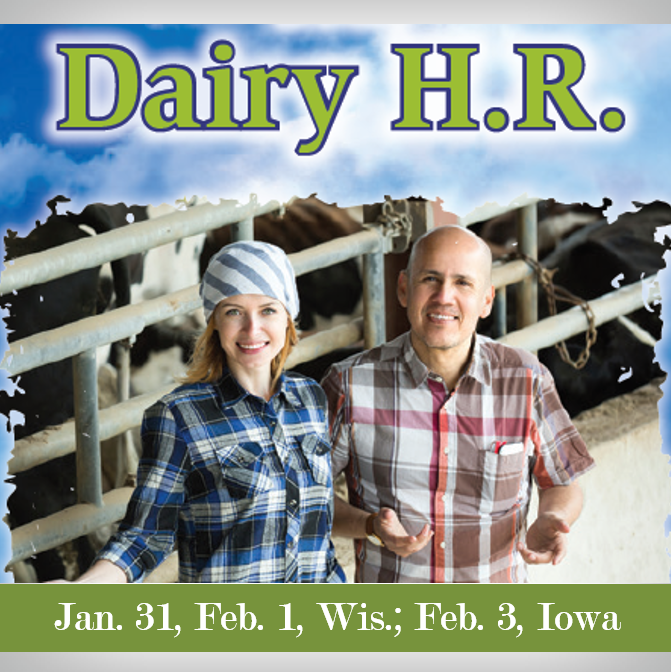 SOAR WITH THE EAGLES - DODGE THE TURKEYS! In order to succeed in dairy today, there is one critical set of tasks you have to get right: hire, retain and engage 'eagle' employees. Just one bad hire can create a cycle of frustration that results in lost production, poor animal care, low employee morale, and loss of income. Attend this workshop facilitated by HR expert Trevina Broussard and leave with take-home hiring tools, retention tips and employee-engagement techniques that will make life easier and take the guesswork out of hiring, retaining and engaging 'eagle' employees. Sessions will be held January 31 in Oshkosh, Wis., February 1 in Eau Claire, Wis., and February 3 in Orange City, Iowa. Click here for more information. Register online or call PDPW at 800-947-7379. SOAR WITH THE EAGLES - DODGE THE TURKEYS! In order to succeed in dairy today, there is one critical set of tasks you have to get right: hire, retain and engage 'eagle' employees. Just one bad hire can create a cycle of frustration that results in lost production, poor animal care, low employee morale, and loss of income. Attend this workshop facilitated by HR expert Trevina Broussard and leave with take-home hiring tools, retention tips and employee-engagement techniques that will make life easier and take the guesswork out of hiring, retaining and engaging 'eagle' employees. Sessions will be held January 31 in Oshkosh, Wis., February 1 in Eau Claire, Wis., and February 3 in Orange City, Iowa. Click here for more information. Register online or call PDPW at 800-947-7379.
MARK YOUR CALENDARS FOR THE 2017 BUSINESS CONFERENCE AND CORNERSTONE DAIRY ACADEMY. A special celebration is planned for PDPW's 25th Business Conference March 15-16 in Madison, Wis. We have over 70 dynamic sessions planned showcasing high-caliber business speakers, hands-on workshops, and a trade show featuring new products with over 200 of the industry's leading companies.

The Cornerstone Dairy Academy™ will be held on March 14-15 for producers and dairy industry professionals wanting to heighten their communications, collaboration and leadership skills. Applications for the Academy are due January 31. Click here for details.
|
For your dairy...
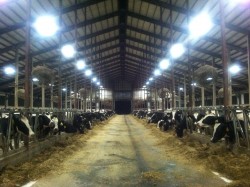 A REVIEW OF LED- AND LONG-DAY-PHOTOPERIOD LIGHTING by researchers at Cornell showed LDPP (Long Day Photoperiod) conditions did not affect milk production compared to the T8 tubular fluorescent light fixtures, but differences in energy use among lighting technologies was seen. The study utilized three nearly identical barns, measuring approximately 220 feet long by 114 feet wide, on a commercial dairy farm. Existing high pressure sodium (HPS) fixtures were replaced with either new LED or T8 fluorescent fixtures. Two barns were placed on an 18-hour lighting interval, one with LED fixtures and one with T8 fixtures. The third barn (the control) was placed on a conventional lighting interval with T8 fixtures. Milk production, energy usage and light brightness at cow eye level were measured in all barns for the duration of the study. Read the full study results including net present value (NPV) calculations and management considerations for LDPP conditions here. A REVIEW OF LED- AND LONG-DAY-PHOTOPERIOD LIGHTING by researchers at Cornell showed LDPP (Long Day Photoperiod) conditions did not affect milk production compared to the T8 tubular fluorescent light fixtures, but differences in energy use among lighting technologies was seen. The study utilized three nearly identical barns, measuring approximately 220 feet long by 114 feet wide, on a commercial dairy farm. Existing high pressure sodium (HPS) fixtures were replaced with either new LED or T8 fluorescent fixtures. Two barns were placed on an 18-hour lighting interval, one with LED fixtures and one with T8 fixtures. The third barn (the control) was placed on a conventional lighting interval with T8 fixtures. Milk production, energy usage and light brightness at cow eye level were measured in all barns for the duration of the study. Read the full study results including net present value (NPV) calculations and management considerations for LDPP conditions here.
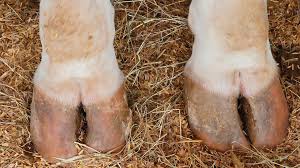 DIET CHANGES AND IMBALANCES CAN AFFECT HOOF HEALTH, especially when dairy cow diets are overloaded with sugars and starches or when rations are changed too quickly. When fermented by rumen microbes, sugar and starch create an acidic rumen environment which can damage the gastrointestinal lining and create localized or systemic inflammations that travel outside of the rumen. Diet changes and lower rumen pH can also cause a shift in rumen microbial populations, which may favor species such as Treponema, which play a role in digital dermatitis. By carefully formulating the diet and monitoring cow health, dairy producers can limit occurrence of hoof health issues caused by nutritional imbalance and mismanagement. Click here to read the Walking Strong series fact sheet from University of Wisconsin Extension. DIET CHANGES AND IMBALANCES CAN AFFECT HOOF HEALTH, especially when dairy cow diets are overloaded with sugars and starches or when rations are changed too quickly. When fermented by rumen microbes, sugar and starch create an acidic rumen environment which can damage the gastrointestinal lining and create localized or systemic inflammations that travel outside of the rumen. Diet changes and lower rumen pH can also cause a shift in rumen microbial populations, which may favor species such as Treponema, which play a role in digital dermatitis. By carefully formulating the diet and monitoring cow health, dairy producers can limit occurrence of hoof health issues caused by nutritional imbalance and mismanagement. Click here to read the Walking Strong series fact sheet from University of Wisconsin Extension.
RESEARCH DATA ON ROBOTIC MILKING SYSTEMS is being completed as robots are becoming more competitive in the U.S. and more systems are installed. Researchers at the University of Minnesota completed a review of three recent studies published in the Journal of Dairy Science. In two of the studies, a free traffic design resulted in higher output per cow compared to guided traffic design. The summaries also included budget simulations and a link to an online tool developed by the University to evaluate milking systems. Given the current economic environment in the U.S., robots are increasingly becoming competitive with conventional parlors. Read the study summary here.
THE IMPACT OF PREBIOTIC SUPPLEMENTATION IN DAIRY CALVES was reviewed in a recent study published in the Journal of Dairy Science. Prebiotics, nondigestible but fermentable oligosaccharides that regulate growth and activity of beneficial microbial populations, can enhance gut health and function. 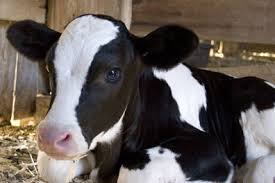 In this study, the effect of supplementation with Galactooligosaccharides (GOS) was evaluated in dairy calves fed for high rates of growth. Calves fed GOS displayed greater Lactobacillus and Bifidobacterium relative abundance and had more developed intestinal epithelial structures. They also had greater fecal scores, presumably related to greater colonic water secretion. Excessive GOS supplementation had both prebiotic and laxative effects, which led to slightly lower growth performance while promoting commensal bacteria population and greater intestinal epithelium growth. To learn more, read the full study here. In this study, the effect of supplementation with Galactooligosaccharides (GOS) was evaluated in dairy calves fed for high rates of growth. Calves fed GOS displayed greater Lactobacillus and Bifidobacterium relative abundance and had more developed intestinal epithelial structures. They also had greater fecal scores, presumably related to greater colonic water secretion. Excessive GOS supplementation had both prebiotic and laxative effects, which led to slightly lower growth performance while promoting commensal bacteria population and greater intestinal epithelium growth. To learn more, read the full study here.
|
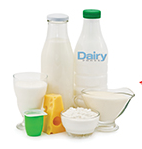 WHAT WERE THE BEST NEW DAIRY PRODUCTS IN 2016? Dairy Foods magazine editors reviewed all the new dairy products published in the magazine during the year and have compiled a list of their 10 favorites based on originality, packaging and taste. They have also compiled a list of 30 nominees and given readers an opportunity to vote on their favorites. View the list and vote before January 6. WHAT WERE THE BEST NEW DAIRY PRODUCTS IN 2016? Dairy Foods magazine editors reviewed all the new dairy products published in the magazine during the year and have compiled a list of their 10 favorites based on originality, packaging and taste. They have also compiled a list of 30 nominees and given readers an opportunity to vote on their favorites. View the list and vote before January 6.
CALIFORNIA TARGETS DAIRY COWS TO FIGHT GLOBAL WARMING. Despite strong opposition from farmers, Gov. Jerry Brown signed legislation in September that - for the first time - regulates heat-trapping gases from livestock operations and landfills. Cattle and other farm animals are often blamed to be major sources of methane, a greenhouse gas many times more potent than carbon dioxide. The new California law requires dairies and other livestock operations to reduce methane emissions 40 percent below 2013 levels by 2030. Dairy farmers, already struggling with the financial burden that five years of drought, low milk prices and rising labor costs have weighed upon them, say the new regulations will further drive up costs. Read here.
|
For your business mind...
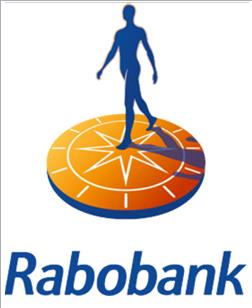 RABOBANK STILL SEES CHALLENGES FOR DAIRY TRADE including the Russian trade embargo, the slowing of demand growth from China, the impact of low oil prices on demand from oil-exporting countries and the strengthening of the US dollar, according to the report "Strong Headwinds Weigh on Trade Growth." Dairy trade is likely to grow at a slower rate than in recent years, driven more by population growth than per capita consumption increases, said report strategists. More details are available in the full report. RABOBANK STILL SEES CHALLENGES FOR DAIRY TRADE including the Russian trade embargo, the slowing of demand growth from China, the impact of low oil prices on demand from oil-exporting countries and the strengthening of the US dollar, according to the report "Strong Headwinds Weigh on Trade Growth." Dairy trade is likely to grow at a slower rate than in recent years, driven more by population growth than per capita consumption increases, said report strategists. More details are available in the full report.
STRUCTURED INTERVIEW QUESTIONS ARE MORE PRODUCTIVE and lead to more effective interviews with job candidates. If interviewers ask questions randomly and spontaneously, they're risking evaluating traits that don't predict job performance.
However, structured questions that are designed around the job-related traits you're looking for will deliver results that are more specific to the job. Tips for writing objective structured questions include:

- Use real-life situations
- Be clear and concise
- Avoid jargon
- Ensure questions can't be answered with a simple 'yes' or 'no'
- Avoid questions that point to a right answer
- Avoid adding excessive detail
- Don't try to assess anything non-job related (especially protected characteristics)
Learn more about the interview process and find examples of questions in this blog post.
SMALL ACTS OF CIVILITY CAN HAVE BIG IMPACT ON WORKPLACE
according to research by an associate professor at Georgetown University. Her study showed that both acts of kindness or rudeness ripples across an organization, affecting not only the recipients of those gestures, but everyone they interact with as well. The author's research found that
those simply around incivility are more likely to have dysfunctional and aggressive thoughts
, although they may be unaware of the connection. Small actions such as thanking people, humbly asking questions, and sharing credit can contribute to a cycle that fosters greater civility among the people in your workplace. Read the blog post and find tips
.
 BOOK REVIEW: EGO IS THE ENEMY. Author Ryan Holiday delivers practical and inspiring stories that show how ego has long been linked with success, but this same drive can have a dark side. Early in our careers, it impedes learning and the cultivation of talent. With success, it can blind us to our faults and sow future problems. In failure, it magnifies each blow and makes recovery more difficult. At every stage, ego holds us back. Ego Is the Enemy draws on a vast array of stories and examples, from literature to philosophy to history, including fascinating figures such as George Marshall, Jackie Robinson, Katharine Graham, Bill Belichick, and Eleanor Roosevelt, who reached the highest levels of power and success by conquering their own egos. Their strategies and tactics can be ours as well. BOOK REVIEW: EGO IS THE ENEMY. Author Ryan Holiday delivers practical and inspiring stories that show how ego has long been linked with success, but this same drive can have a dark side. Early in our careers, it impedes learning and the cultivation of talent. With success, it can blind us to our faults and sow future problems. In failure, it magnifies each blow and makes recovery more difficult. At every stage, ego holds us back. Ego Is the Enemy draws on a vast array of stories and examples, from literature to philosophy to history, including fascinating figures such as George Marshall, Jackie Robinson, Katharine Graham, Bill Belichick, and Eleanor Roosevelt, who reached the highest levels of power and success by conquering their own egos. Their strategies and tactics can be ours as well.
"Good business leaders create a vision, articulate the vision, passionately own the vision,
and relentlessly drive it to completion." - Jack Welch
|
Meet a Fellow PDPW Member. . .
 |
|
 |
Zirbel Dairy Farms, LLC
|
Pride beams on the faces of members of the Zirbel family when they talk about continuing the farming tradition that began more than 100 years ago near DePere, Wisconsin. Mike and Sandi Zirbel are fourth generation and their daughter Chelsea and her husband Kris Scheider, and their son Jordan and his wife Alyssa are the fifth generation of Zirbels on the farm that has grown to 775 dairy cows and 1800 owned and rented acres.
Mike worked with his father Gerhold for eight years, then Mike and Sandi bought the farm in 1980. They gradually increased the cow numbers and built a D12 parlor. As the herd size increased, they began hiring part-time help maintaining the milking herd at 200 cows.
When Chelsea, Kris and Jordan joined the farm in 2006, they expanded the herd again to 600 cows and also updated and expanded facilities; they are currently at 775 cows. Chelsea is the personnel manager and helps with the herd, farm books and reporting and Kris mainly concentrates on the cows.
Jordan works with agronomy and machinery management.
They have enough land to raise all their own feed and in years of excess they store the extra feed. Jordan works closely with their agronomist to develop a nutrient management plan that protects the soil from erosion and keeps nutrients in place.
Sandi keeps the books and handles money management. Mike's strength is in land management; he enjoys networking with other farmers and implementing ideas to improve land productivity. In addition to family, the Zirbels hire nine full-time workers and two local teens part time.
Kris and Chelsea live on a farm nearby where young stock are housed and calves are raised by a custom grower until they reach five months of age.
"The blessing of a multi-generational farm is you can harness the experience of the older generation and the energy and ideas of the younger generation. When open-mindedness flows from both directions, success follows," said Mike.
The family hosted the Brown County Dairy Breakfast in 2012, during which 7,200 people visited the farm and learned about the family's mission to provide good care for their animals and the land.
The Zirbel family is relatively new to PDPW, having joined after Mike and Sandi toured with PDPW on their international farm tour to New Zealand. Chelsea and Kris have also attended several conferences and applied many different ideas to increase the success of the farm.
"The labor management conference was very interactive and we like that because so many people bring ideas to the table," said Chelsea. "We're impressed with the diversity of topics at the business conferences we've attended. There were so many sessions we wanted to attend together, but we split up so we could take it all in."
|
|
A BIG Thank You...
TO OUR PDPW SPONSORS who
support continuous improvement for the dairy industr
y.
T
hey believe in producer leadership and place a high value on lifelong
education for those involved in the dairy industry. We deeply respect their commitment to PDPW and the members we have the honor to serve. It is by this partnership that we c
ontinu
e to build a strong industry filled with capable professionals. Click
HERE
to see a list of our sponsors. If you interact with any of these companies, please thank them for supporting PDPW!
If you or a company you know is interested in participating as a sponsor, please contact one of our team members at [email protected] or call 800-947-7379.
|
|
PDPW Education Calendar
January 17-19
|
Managers Academy: San Diego, Cal.
|
| January 26 |
Dairy's Visible Voice Training - Crisis Management: Baraboo, Wis.
|
January 31,
February 1,3
|
Dairy Human Resource Conference: Oshkosh, Wis., Eau Claire, Wis., and Orange City, Iowa.
|
February 16
|
Dairy's Visible Voice Training - Effective Leadership: Baraboo, Wis.
|
| February 21 |
Agricultural Community Engagement Meeting - Wisconsin Dells, Wis.
|
March 14-15
|
Cornerstone Dairy Academy: Madison, Wis.
|
March 15-16
|
Business Conference: Madison, Wis.
|
April 6
|
Dairy's Visible Voice - Proactive Communication: Baraboo, Wis.
|
April 22-23
|
Youth Leadership Derby: Colby, Wis.
|
STAY CONNECTED
800-947-7379
|
|
|
|
|